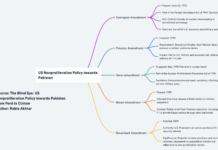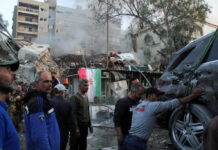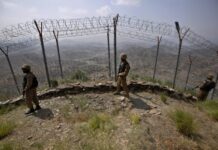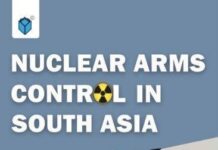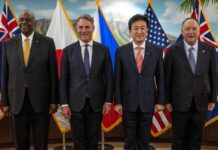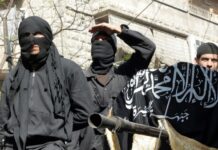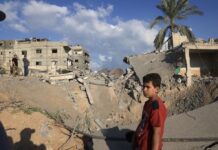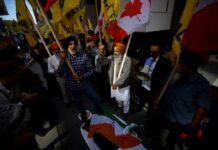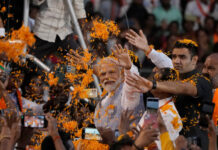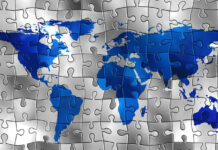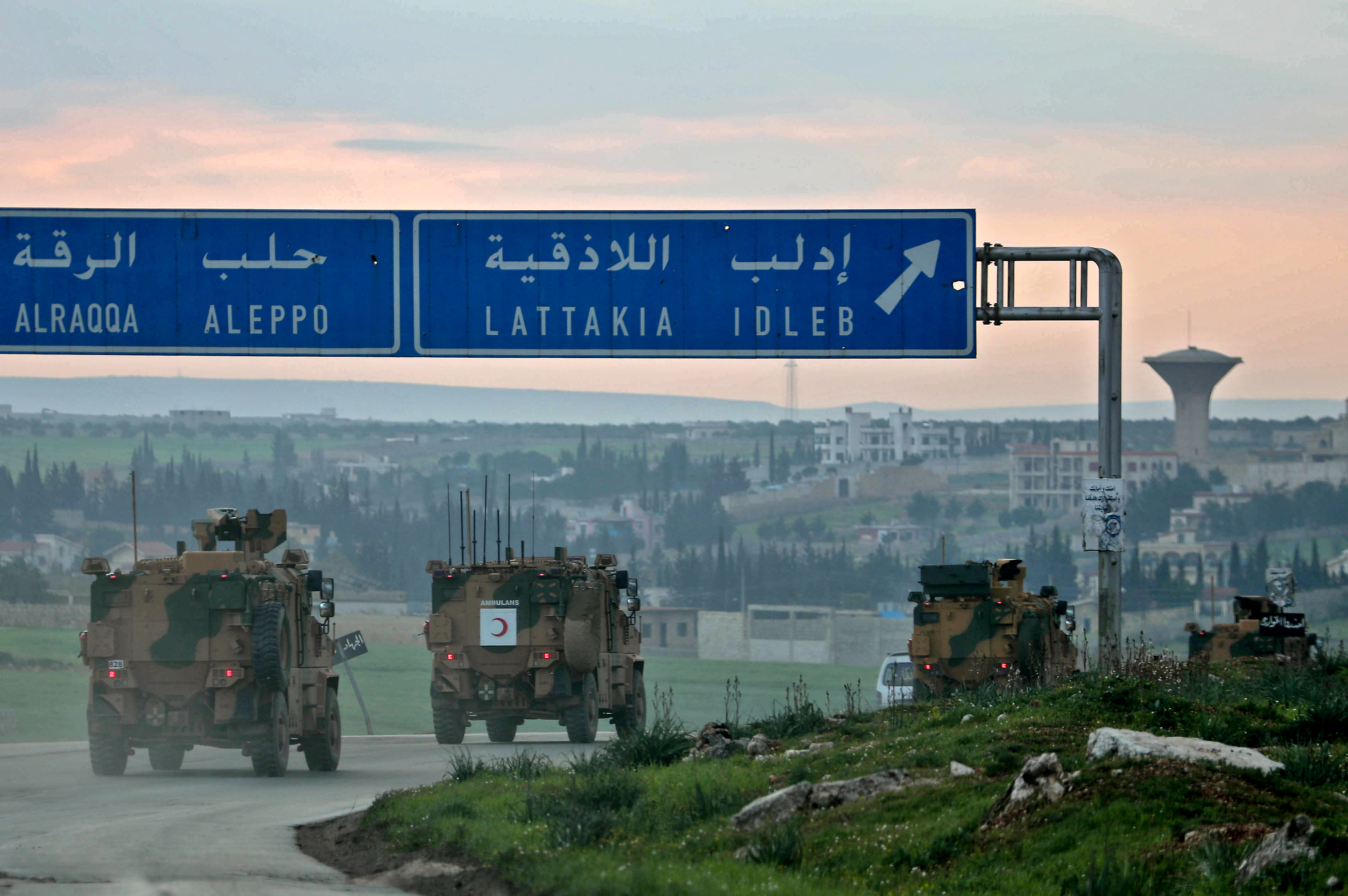
Qadir Khan Yousafzai
America had announced its troop withdrawal from the Middle East at the pretext of defeating ISIS however, we see that it has further entangled itself in the greater Middle East with subtly increasing its force presence. U.S. Congress rebuked President Trump over his announcement of troop withdrawal from the Middle East stating that the threat of ISIS and Al-Qaeda still remains and the time is not right for the U.S. to leave the region.
More than 6 million Syrians have relocated within the country after being displaced and 5.6 million Syrians have left the country. 3.5 million Syrians have sought refuge in Turkey, 1 million in Lebanon and 0.7 million in Jordan. There is a huge number of Syrians refugees in Europe, most of them residing in Germany.
Turkey desires to fill the space in Syria after the withdrawal of the U.S. troops. If we look at the last fifteen years of Turkish military development, it ranks amongst the top defence producers in the world. According to the 2019 Military Strength Rankings, Turkey is at No. 9. The Turkish modern battle tank, Altay, is indigenously made and is a hit with the arms export market. Turkey also made an investment of half a billion dollars to acquire U.S. F-35 jets however, after much reluctance and forewarning, the Trump administration has now struck Turkey off its F-35 Joint Strike Fighter Program over their acquisition of S-400 air-defense system from Russia. Tensions between the two NATO allies, Turkey and the U.S. were all too visible in the previous months over Syria. At the NATO Foreign Ministers’ meeting in April, Mike Pompeo warned Ankara of ‘potentially devastating consequences’ against Turkish offensive in Syria. However, Turkey is ignoring U.S. pressure on Syria. Turkey continues to test its new generation, twin engine, GÖKBEY Multirole Helicopter, mass production of which will begin in 2021.
The obscure U.S. strategy in the Middle East is detrimental for the U.S. interests in the region and will only benefit Iran and Russia. More than 0.5 million people have lost their lives in Syria and the UN has also failed to stop the death and destruction in Syria. The UN Secretary General, Antonio Guterres has urged Russia and Turkey, as the signatories of the September 2018 Memorandum of Understanding on Idlib, to stabilize the situation, stressing that there is no military solution to Syria. In his interaction with the reporters, the UN Chief shared his apprehensions about the deteriorating situation in Idlib, referring to the ever increasing list of new characters partaking in intensifying the war in Syria.
The ongoing war in Syria has prolonged due to the involvement of the two superpowers, the U.S. and Russia, where the U.S. favors Israel and Russia favors Syria. Both U.S. and Russia benefited from the civil war in Syria and did not take the Iranian involvement in Syria seriously. Iran, in the name of protecting the holy sites in Syria, created militias and sought Russian support for them. Iran has designs to reach Golan heights which is a cause of worry for Israelis. German Chancellor, Angela Merkel has also warned Iran against its designs to reach the Golan heights. Iran’s strategic objective through backing Iran-allied militias in Syria is to deter any Israeli attack on Iran by keeping Israel’s northwest border disturbed. Even though Syria and Israel always had their border skirmishes, activity on the border has increased since 2011 when the war broke out providing Iran a chance to strengthen its proxies to irk Israel. The U.S. has also warned Iran to not threaten U.S. interests in the region, of which Israel is paramount.
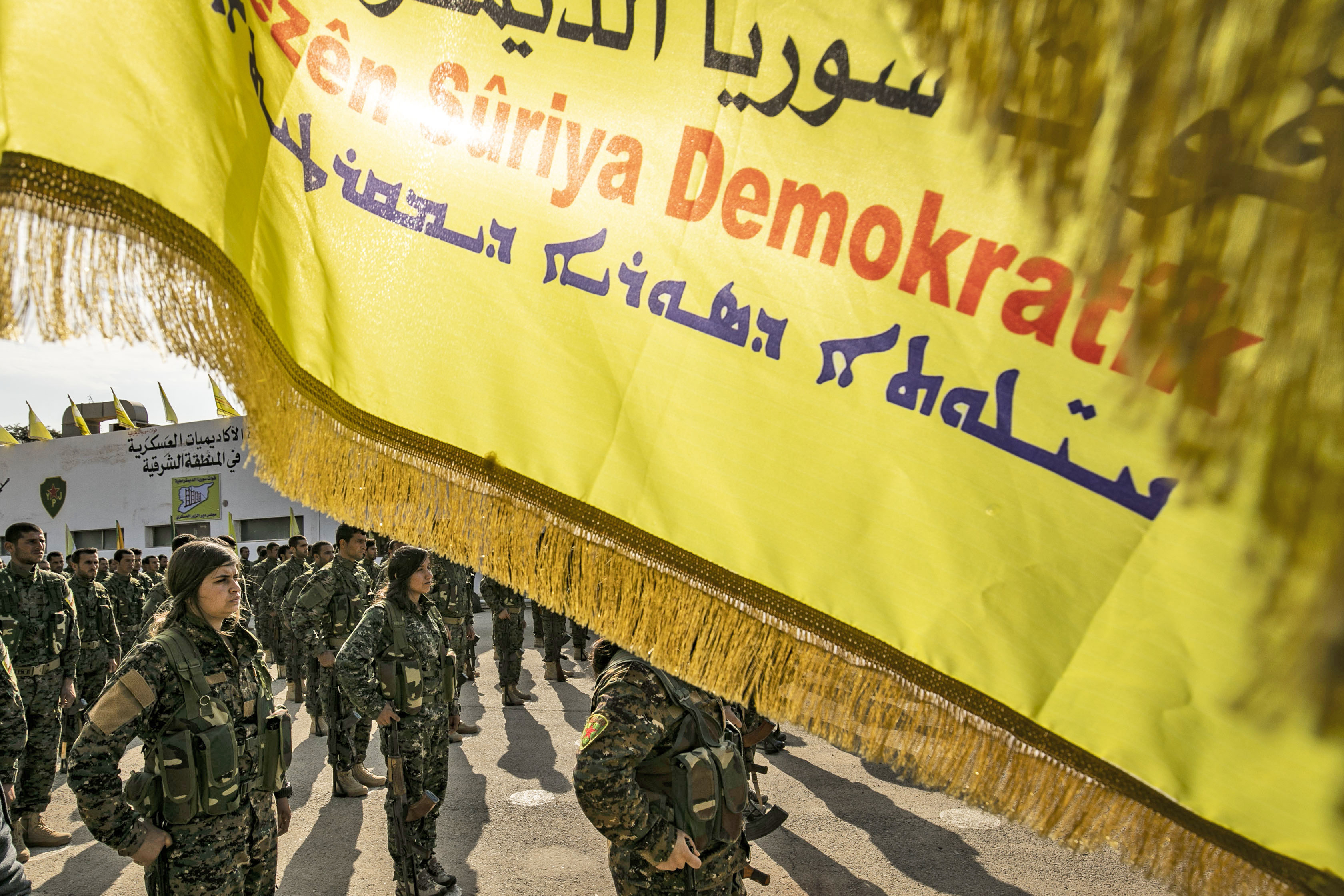
Although Turkey joined the U.S. as an ally in Syria, their differences over the Kurdish issue have kept them at loggerheads. Earlier this year, President Trump warned Ankara of disastrous consequences for its economy if it took any military action against YPG (Kurdish People’s Protection Units) which is fighting against ISIS in northern Syria alongside the U.S. Trump warned Erodgan not to mistreat the Kurds and other Syrian Democratic Forces urging that security zones be created in northern Syria. The U.S. fears that once it leaves Syria, Turkey will attack the Kurds in the Syrian Democratic Forces (SDF). The U.S. is trying to reach an agreement with Turkey to protect the Kurdish fighters. Turkey, on the other hand, dismissed Trump’s threats and said that they will not be deterred. Turkey believes that YPG is part of the Kurdistan Workers Party (PKK), who are separatist Kurdish militants and regularly conduct attacks on Turkish army base in northern Iraq. Turkey has also strongly protested the U.S. arming the YPG militias in Syria. One of the options for getting Turkey on board to create security zones is for the U.S. to take back the weapons it gave to Syrian Kurds. Turkey considers YPG to be a terrorist organization therefore U.S. assistance to YPG is not acceptable to Turkey and is a dealbreaker.
There are many fighters in Syria who have came from other countries. They are considered as major hurdle to a permanent peaceful solution in Syria since they keep changing sides in the conflict. These groups are afiliated with Al-Qaeda, Al-Nusra, ISIS, Al-Nusra Front, Suquor al-Sham, Harakat Sham al-Islam, Green Battalion and Jund al-Sham to name a few. In Homs, Jaish al-Muhajireen wal-Ansar is the most prominent of these groups. These groups are in addition to the Iranian backed militias in Syria that have prolonged the war in Syria.
Turkey wants to continue its military operations against all terrorist groups including Fetullah Gülen Movement (FGM), Partiya Yekîtiya Demokrat (PYD), The Kurdistan Workers’ Party (PKK), YPG and ISIS which are a threat to Turkey. There are reports that Turkey is planning an offensive east of the Euphrates River against Kurdish militia.
Russia believes that engagement with Turkey is necessary for any solution of the Syrian conflict but there are frustrations with how some affiliates of each side are performing in northern Syria. Turkish military offensive, Operation Olive Branch is an attack by the Turkish armed forces in the Kurdish Afrin District in northwest Syria in collaboration with the Free Syrian Army (FSA) to fight the People’s Protection Units (YPG). Turkey maintains that its attacks under this offensive are not targeting civilians and are avoiding civilian casualties. Turkey refers to its right of self-defense under international law and Article 51 of the UN Charter given that its territory has been attacked for over more than 700 times from Syria by the YPG militants. For Turkey, the Manbij Sub District and the northern Euphrates are two areas that are extremely important given its security concerns. Turkey believes that YPG, supported by the U.S., wants to provide military assistance to PKK and therefore, creating safe zones near Turkey’s borders will allow Turkey to safeguard its security interests along with guaranteeing its relevance to Syrian peace talks.
Since Sochi Conference last year, Russia, Turkey and Iran have almost finalised the names for constitutional committee to achieve settlement of the Syrian conflict. While all three countries are looking forward to the U.S. withdrawal from the region, they have collectively called on the international community to resolve the humanitarian dilemma in Syria which has aggravated due to constant infighting and war between various militias backed by one country or the other. The plight of the Syrian people and their rehabilitation needs to be paramount – idealistic as it may seem, it is not impossible.
Qadir Khan Yousafzai is a Columnist at Jehan Pakistan.



